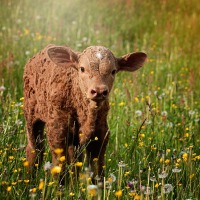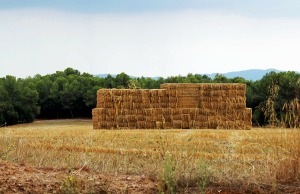

Organic Livestock Farming & Feed Solutions

If you are trying to raise animals on an organic farm, it’s important that you find organic livestock feed for your animals. What makes animal feed organic?
If you are a farmer and want to raise animals organically on your farm, you have several options. Organic livestock could include cattle, sheep, goats, bees, swine, poultry and equine animals. Organic animals are raised for several reasons.
What is organic livestock farming?
Livestock can be raised organically to produce milk, meat, fiber or other products using methods that preserve the environment and avoid most synthetic materials, such as pesticides and antibiotics. In order to qualify for organic certification, and to call your livestock organic, you must follow a set of strict rules and standards set by USDA. This is more complicated than indoor organic farming when you grow your own produce for your family (explore growpodsolutions.com to learn more).
Due to the growing concerns among consumers, livestock farmers, and government, based on health hazards, environmental concerns, and economic concerns, demands for organic animal products are increasing.
If you are raising ruminant animals on your farm, they are able to digest the cellulose in grass. Your pasture grasses and hay should provide majority of the feed for them, and it must also be organic. However, your grasses may not always be sufficient for your animals and you may need to supplement your animals with other organic feeds.
Supplementing organic pasture grasses
A balanced diet is vital for growing healthy animals in your farm. It naturally enhances and strengthens your animal’s immune system. Adding organic supplements will potentially improve your animal’s health, performance, and welfare.
 Even if you have pasture grasses and hay, good pasture management is necessary. You also need to supplement your animals with necessary nutrients that are not present in your pasture. With the rapid growth of commercial feedstuffs, it’s often difficult to select the right food for your animals.
Even if you have pasture grasses and hay, good pasture management is necessary. You also need to supplement your animals with necessary nutrients that are not present in your pasture. With the rapid growth of commercial feedstuffs, it’s often difficult to select the right food for your animals.
When buying food for our animals, we are often confused by various names and labels given to animal feed. We see animal feed labeled as “natural” or “organic” and sometimes many of us think that they are the same. But actually, natural and organic do not mean the same thing.
“Organic is not the same as natural, which refers to products that are minimally processed with no artificial ingredients, coloring agents, or chemicals. Organic is also not the same as pasture-raised or grass-fed, although this is a requirement for the organic certification. In 2010, the U.S. Department of Agriculture (USDA) further restricted the definition of organic milk and meat to require that it come from livestock that graze on pasture for at least one third of the year, getting 30% of their feed from grazing. Previously they only had to have “access to pasture.” – Raising Organically Certified Dairy Goats – Countryside Magazine
Sprouted fodder system for livestock
You could easily grow a large number of cereal grasses including wheat grass, alfalfa, barley, etc. by sprouting seeds in a hydroponic system. It usually takes 6-8 days to get harvest size grasses from seeds.
Replay of the NTP/CEED Biweekly Hangout With Taber Ward
This is another exciting webinar with our huddle guest Taber Ward, founder and Executive Director of Mountain Flower Dairy. On this webinar Taber talks about Mountain Flower’s daily operations, employee supervision, herd-health, food safety protocol, volunteer and intern program, milk shares and education programs.
Video Credit: Ecolonomics
Do you want to learn more about growing your own grasses with microgreen fodder system? We will show you how. Get your DIY plans for proven livestock feeding systems from us. You can also get Feed in A Box Microgreen (fodder) and find out how great it is!! Please contact us at 303-495-3705 or Click here to book a meeting with us.
Have you tried our DIY system? If you have, please let us know how well they are working for you. If not, now is the time to build a DIY system and try it yourself.
We’d love to hear from you, so please leave your questions or comments in the comment box below or visit our Facebook Page.
Source: Sustainable Livestock Nutrition
Related articles and resources:
- Organic Livestock Nutrition – Feeding, Health & Nutrition of Organic Farms | Sustainable Livestock Nutrition
- Make Hay While Sun Shines – Hay Silage & Animal Feed | Sustainable Livestock Nutrition
- Tips on Pasture Management & Feeding Heat-Stressed Livestock | Sustainable Livestock Nutrition
- Fodder For Livestock – Make Your Own DIY Sprouted Fodder System | Sustainable Livestock Nutrition
- Organic Certification | SCS Global Services
- Organic Agriculture | USDA
- Organic Feed Supplements







